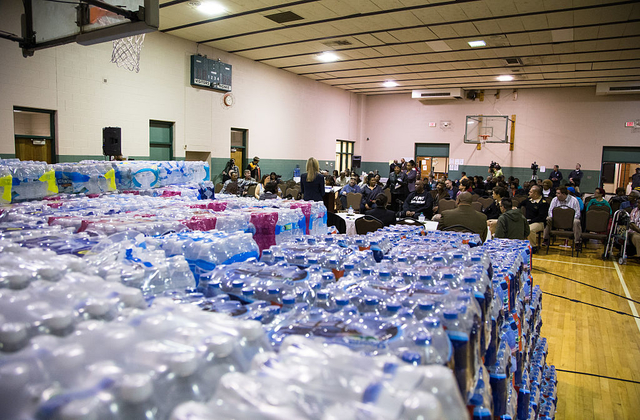In Flint, Michigan, it’s still unsafe to drink water directly from city faucets. And now, according to some community members, water-bottle donations are down.
Bishop Roger Lee Jones of the Greater Holy Temple Church of Christ in God—a distribution site six days a wee—told Michigan Radio that donations have decreased as national attention to the story has dwindled. "Frankly, there are a lot of people that I meet across the country who believe that the crisis has been solved," Jones was quoted as saying. Now, he must ration the water the site hands out.
And Bill Kerr, president of the Food Bank of Eastern Michigan, said in an ABC interview that donations could fill up 50 semi trucks a week at the height of news coverage of the crisis. Now they need only seven semis.
Many residents—skeptical of the CDC’s claim that filtered water is safe—continue to drink only bottled water, according Michigan Radio. And perhaps they should: On June 29, the Genessee County Medical Society suggested that pregnant women and children younger than 6 should not drink tap water even if it’s filtered.
No government agency has tested Flint’s tap water since the governor and mayor’s campaign asking residents to flush their pipes in May, so the doctors recommend bottled water at least until it’s tested for lead again.
When the nation first found out about the water toxicity, donations poured in. Celebrities such as Big Sean and Meek Mill donated thousands of dollars and bottles of water. The Justice for Flint benefit concert in February raised $156,000. Beyoncé recently gave $82,000 to the United Way of Genessee County, which handles the Flint Water Fund.
Still, all of the celebrity donations in the world won’t fix the massive problem of Flint residents lacking clean tap water to drink, cook with and bathe in. The crisis continues—just with less attention.
